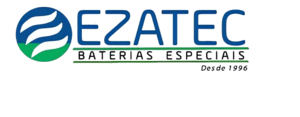http://www.mediafire.com/file/y3ud53irgx8gw28/ENSAMBLAJE_DE_TRANSFORMADORES_ELECTRICOS.pdf
No Blog Eletrônica de Potência você encontrará informações sobre teses,artigos,seminarios,congressos,tecnologias,cursos,sobre eletrônica potência. “TEMOS O DESTINO QUE MERECEMOS. O NOSSO DESTINO ESTA DE ACORDO COM OS NOSSOS MERITOS” ALBERT EINSTEIN. Imagination is more important than knowledge, for knowledge is limited while imagination embraces the entire world. EL FUTURO SE CONSTRUYE HOY,EL SUCESSO NO ES FRUTO DE LA CASUALIDAD,SE HUMILDE ,APRENDE SIEMPRE CADA DIA.
AUTOR DO BLOG ENG.ARMANDO CAVERO MIRANDA SÃO PAULO BRASIL

.gif)
“GRAÇAS A DEUS PELA VIDA,PELA MINHA FAMÍLIA,PELO TRABALHO.PELO PÃO DE CADA DIA,POR NOS PROTEGER DO MAL”
“SE SEUS PROJETOS FOREM PARA UM ANO,SEMEIE O GRÂO.SE FOREM PARA DEZ ANOS,PLANTE UMA ÁRVORE.SE FOREM PARA CEM ANOS,EDUQUE O POVO”


https://picasion.com/


domingo, 20 de agosto de 2017
ENSAMBLAJE DE TRANSFORMADORES -Minsker- Assembly of power transformers by Efim Grigor'evich Minsker
http://www.mediafire.com/file/y3ud53irgx8gw28/ENSAMBLAJE_DE_TRANSFORMADORES_ELECTRICOS.pdf
sábado, 19 de agosto de 2017
TRANSFORMADORES DE POTÊNCIA-TEORIA E APLICAÇÕES TÓPICOS ESSENCIAIS DANIEL DA SILVA NOGUEIRA
TRANSFORMADORES DE POTÊNCIA-TEORIA E APLICAÇÕES TÓPICOS ESSENCIAIS
AUTORES: DANIEL DA SILVA NOGUEIRA,DIEGO PRANDINO ALVES
DEPARTAMENTO DE ENGENHARIA ELÉTRICA DA ESCOLA POLITÉCNICA DA UNIVERSIDADE DE RIO DE JANEIRO BRASIL
LINK ORIGINAL LIVRE NA WEB:
http://monografias.poli.ufrj.br/monografias/monopoli10001033.pdf
quarta-feira, 16 de agosto de 2017
LACERDA SISTEMAS DE ENERGIA NOVO MERCADO,NOVAS OPORTUNIDADES
VEJA A ENTREVISTA DA REVISTA ONLINE DADA PELO DIRETOR DA LACERDA SISTEMAS DE ENERGIA SR. JOILSON LACERDA
VER A REVISTA SEGURANÇA ELETRÔNICA COMPLETA NO LINK:
http://revistasegurancaeletronica.com.br/revista-seguranca-eletronica-agosto/
terça-feira, 15 de agosto de 2017
A Study on Control and Grid Synchronization for a Threephase Grid-connected Inverter in Distributed Generation Systems - Lai Ngoc Bao -Dept. of Electrical and Information Engineering The Graduate School Seoul National University of Science and Technology
Abstract
A Study on Control and Grid Synchronization for a Three-phase Gridconnected Inverter in Distributed Generation Systems Lai Ngoc Bao (Supervisor Kim, Kyeong-Hwa) Dept. of Electrical and Information Engineering The Graduate School Seoul National University of Science and Technology
This thesis presents an improved current control strategy for a three-phase grid-connected inverter under distorted grid conditions. The primary challenge associated with the gridconnected inverter in distributed generation (DG) systems is to maintain the harmonic contents in output current below the specified values even when the grid is subject to uncertain disturbances such as harmonic distortion. To address such a challenge, an improved current control scheme is proposed for a grid-connected inverter, in which the fundamental and harmonic currents are independently controlled by a PI decoupling controller and a predictive basis controller, respectively. The controller design approach is based on the model decomposition principle, where the measured inverter currents and grid voltages are split into the fundamental and harmonic currents using moving average filters (MAFs). Furthermore, to detect the grid angular displacement and frequency with better accuracy even in the presence of the grid voltage disturbances, the MAF is also introduced to construct an enhanced phase-lock loop (PLL) scheme. Theoretical analyses as well as comparative simulations results prove that the proposed control scheme adequately compensates the abnormalities caused by the grid voltage disturbances with fast transient response. To validate the feasibility of the proposed control scheme, the iientire control algorithm is implemented on a 2 kVA three-phase grid-connected inverter system using 32-bit floating-point DSP TMS320F28335. As a result, the proposed scheme is an attractive way to control a grid-connected inverter under adverse grid conditions.
LINK
http://www.mediafire.com/file/6bwc5529rb2b24u/grid.pdf
Leakage Inductance Determination for Transformers with Interleaving of Windings R. Doebbelin and A. Lindemann Institute of Electric Power Systems, Otto-von-Guericke-University Magdeburg, Germany
Leakage Inductance Determination for Transformers with
Interleaving of Windings
R. Doebbelin and A. Lindemann
Institute of Electric Power Systems, Otto-von-Guericke-University Magdeburg, Germany
Abstract| A diversity of formulas is given in literature for leakage inductance calculation
of transformers with interleaving of windings. In the paper, the meaning of included terms and
details of the application for concentric and pie windings transformers shall be discussed. Consid-
ering the limitation of common formulas to magnetically symmetric transformers an alternative
approach shall be demonstrated, which enables leakage inductance prediction also in the case of
transformers with magnetically asymmetric arrangements of windings.
LINK VIEW FULL TEXT:
ttp://www.mediafire.com/file/m116cldykkbcvqc/Vol6No6Page527to531.pdf
Assinar:
Comentários (Atom)














